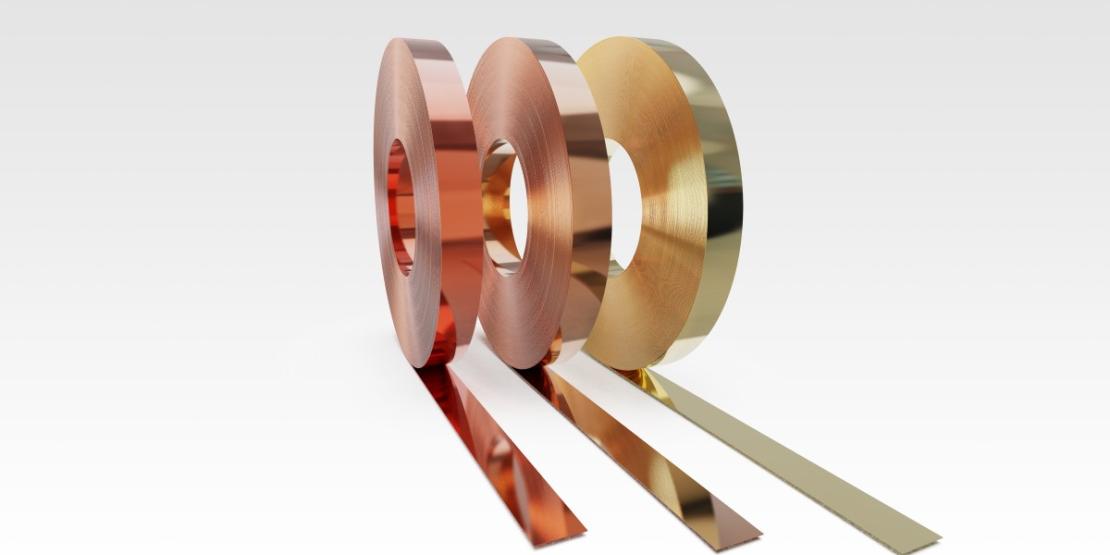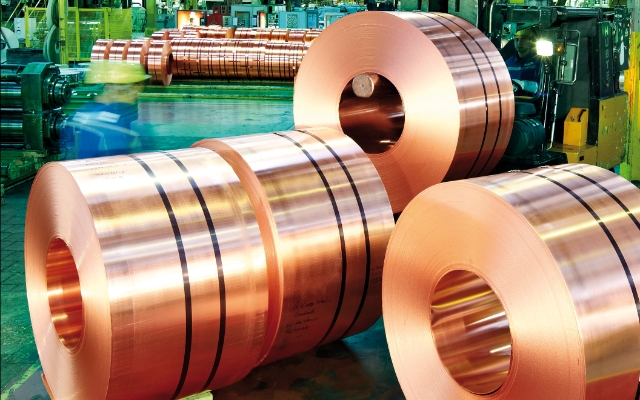Exploring the Diverse Applications of Copper Products in Modern Industries
Copper items have actually established themselves as important elements across a myriad of modern-day markets, mainly due to their remarkable conductivity, malleability, and resistance to corrosion. From boosting the efficiency of electric systems to playing a vital role in eco-friendly power modern technologies, the adaptability of copper appears. Its recyclability settings it as a lasting selection in production and electronics. As markets significantly prioritize innovation and sustainability, the diverse applications of copper warrant a closer evaluation, especially regarding their possible effect on future environmental practices and technological improvements.
Electrical Applications of Copper
Copper is an important material in the electrical market, representing about 60% of the total demand for non-ferrous metals worldwide - Copper Products. Its superior electrical conductivity, which is nearly twice that of light weight aluminum, makes it the preferred option for a wide variety of electric applications. From wiring systems in domestic and industrial structures to high-voltage power transmission lines, copper guarantees efficiency and reliability in electricity distribution
In addition to wiring, copper is integral to the production of electric parts such as transformers, electric motors, and generators. These components utilize copper's thermal conductivity and pliability, important for warm dissipation and effective efficiency. Additionally, copper's resistance to deterioration improves the lifespan and longevity of electric systems, making it a cost-effective solution in the long-term.
The development of renewable resource resources, such as solar and wind power, has even more boosted the need for copper in electric applications. As markets change in the direction of lasting energy remedies, copper's role becomes a lot more vital. In general, the convenience and efficiency features of copper solidify its standing as a keystone product within the electric field, driving innovation and performance across numerous applications.
Plumbing and Piping Solutions
In contemporary pipes systems, the choice of materials substantially impacts both functionality and long life. Copper has actually arised as a favored choice due to its one-of-a-kind properties, including deterioration resistance and antimicrobial qualities. These characteristics guarantee that copper piping remains safe and durable for transporting drinkable water, a critical factor to consider in domestic and commercial applications.
Among the vital advantages of copper in pipes is its capability to withstand heats and stress, making it ideal for a range of applications, from warm water systems to heating and cooling down networks. In addition, copper's versatility allows for less complicated setup in complicated piping designs, reducing the threat of leaks and failings.
One more noteworthy advantage is copper's long lifespan, frequently going beyond 50 years with appropriate upkeep. This durability not only lessens replacement expenses yet likewise adds to lasting practices by minimizing waste. Furthermore, copper's recyclability straightens with modern ecological criteria, promoting a circular economy within the plumbing market.
Copper in Renewable Resource
The versatility of copper extends beyond plumbing applications, playing an essential role in the sustainable energy market. Its superb electric and thermal conductivity makes it a crucial material in the production and distribution of renewable resource resources, particularly solar and wind power. In solar panels, copper is utilized in photovoltaic or pv cells and wiring, helping with effective energy conversion and transmission. Its resistance to rust makes certain long-lasting performance, which is crucial for taking full advantage of energy result with time.

Moreover, as the international demand for electrical lorries (EVs) rises, copper's role in battery systems and charging infrastructure becomes even much more considerable. The material's capability to perform electricity efficiently is essential to the performance of EV batteries, go to my blog improving variety and billing rate.
Copper's Function in Electronic devices
Electronics producing depends heavily on copper's outstanding properties, specifically its high electric conductivity and thermal effectiveness. These attributes make copper a suitable selection for a large variety of electronic components, including adapters, motherboard, and wiring. The metal's ability to efficiently send electric signals guarantees very little power loss, which is vital in high-performance electronic tools.
In addition, copper's thermal conductivity plays a considerable duty in warm dissipation, safeguarding delicate elements from overheating. This is especially important in modern electronic devices, where compact layouts cause enhanced warm generation. Copper is also preferred for its malleability and ductility, click to read permitting it to be conveniently formed into detailed styles that fulfill the demands of sophisticated digital applications.
With the rise of customer electronics, telecoms, and electrical automobiles, the demand for copper in the electronic devices sector proceeds to grow. As developments in technology advance, copper remains indispensable to achieving higher performance and dependability in digital products. Its recyclability additionally enhances its appeal, as makers look for sustainable services without jeopardizing high quality. Thus, copper continues to be a cornerstone product in the ever-expanding area of electronics.
Innovative Makes Use Of in Manufacturing

One significant application is in additive manufacturing, where copper-based materials are employed in 3D printing processes. This permits the creation of light-weight components and intricate geometries, particularly in the aerospace and vehicle sectors. Additionally, copper's thermal conductivity makes it a suitable selection for heat exchangers, enhancing performance in industrial cooling systems.
Additionally, the rise of wise production has actually seen the incorporation of copper in IoT tools, where its conductive capabilities support advanced picking up modern technologies. In the world of sustainable power, copper is crucial in the manufacturing of solar panels and wind turbines, assisting in much more effective energy conversion and circulation.
As markets pursue sustainability and technology, copper's flexibility and performance proceed to place it as an essential product, driving advancements in manufacturing and adding to the growth of smarter, extra reliable items.
Verdict
The important function of copper in renewable power and its go to my blog important feature in electronics underscore its value in advancing lasting practices. Jointly, these applications highlight copper's essential contribution to technical progress and commercial efficiency in contemporary society.
From boosting the effectiveness of electric systems to playing an essential duty in eco-friendly energy technologies, the adaptability of copper is evident. As markets significantly prioritize technology and sustainability, the varied applications of copper warrant a closer evaluation, specifically regarding their potential effect on future technical improvements and ecological practices.
The growth of renewable energy resources, such as solar and wind power, has actually better increased the need for copper in electrical applications. Generally, the convenience and performance characteristics of copper solidify its status as a keystone product within the electric field, driving innovation and efficiency across various applications.
The convenience of copper extends past plumbing applications, playing a vital duty in the eco-friendly power field.